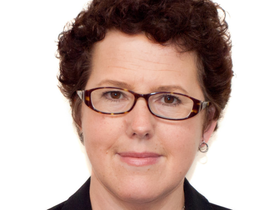event services in Edinburgh
Interview with Joanna Baker, Edinburgh International Festival

‘The Edinburgh International Festival brings audiences and artists together from all over the world.’ Since the Festival started in 1947, it has provided a three-week celebration of the performing arts. People from all over the world to congregate and immerse themselves in a programme featuring the finest performers and ensembles from dance, opera, music and theatre. Managing Director at Edinburgh International Festival, Joanna Baker, discusses Edinburgh’s creative sector and gives us an insight into the infamous celebration of the performing arts.
The Edinburgh International Festival has huge recognition as a leading festival of dance, opera, theatre and music attracting both performers and visitors from every corner of the globe. What is the secret of this success?
Here at the International Festival, we aim to present the very best artists working today from the worlds of international dance, opera, music and theatre. As a result, we have always been far more than a collection of performances; for artists, this offers an opportunity to present their work on a world stage, whilst at the same time seeing and engaging with other artists from different fields. And for our audiences, this multi-disciplinary approach provides a truly unique experience, offering the opportunity to see a huge range of world-class performers night after night over a three week period of intense creativity.
Edinburgh is a hub of creativity and culture throughout the year – the Festivals are a key pillar of this scene but why do you believe Edinburgh is creatively so strong?
Edinburgh has been a city of learning and culture since the Enlightenment – its history, its international outlook, its intellectual life and its stunning architecture all combine to create an extraordinarily fertile platform for creativity at all levels. The people of Edinburgh are at the heart of this success – as artists but also as audience members, with Edinburgh boasting some of the highest attendances at cultural events per capita of almost anywhere else in the UK – and that’s before you add in the visitors! You could say that this is part of the DNA of Edinburgh – it was no accident that the city grasped the opportunity to host the first Edinburgh International Festival in 1947.
You launched your 2018 programme on 14 March. Are there any specific performances you are particularly looking forward to?
That’s a bit like asking which is your favorite child! In all seriousness, I am an unashamed enthusiast for everything we present – but one of the things I think will be really special is Xenos, which will be Akram Khan’s last performance as a dancer – he is an artist I have admired hugely for many years for the way he combines tradition with contemporary. I’m very intrigued by Home and by Cold Blood, both at the King’s Theatre; everyone I know who has seen these shows has loved them and they are both very different from anything you might see around the year, which is part of the job of the International Festival! And I love this year’s opera programme – two really great Rossini opera from international companies – again, something you will only see at the International Festival.
With 70 years under its belt, what are your ambitions for the Edinburgh International Festival in the next 10 years?
The International Festival is constantly evolving as we respond to the world around us, so whilst our overarching ambition is always to continue to be recognised as the world’s leading festival of performing arts, we will increasingly look to extend the range of the work and artists we present and move into new areas of programming. We are also passionate about ensuring that young people who live and grow up in Edinburgh have the opportunity to benefit from the International Festival, through creative learning programmes in schools and also seeing the opportunities to work in the cultural sector themselves. And of course, in an increasingly complex world and in the post Brexit era, the International Festival’s role in facilitating international dialogue and exchange, reflecting Scotland’s reputation as an outward looking nation, becomes even more important.
The Edinburgh International Culture Summit is held every two years in Edinburgh in conjunction with EIF, the Scottish and UK Governments and British Councils. What are the ambitions and some of the key outcomes of this gathering?
The Edinburgh International Culture Summit is a biennial event which attracts delegations from over 40 nations. It’s a fantastic event to hold in Edinburgh in August, when artists from over 80 countries gather, as it brings together those artists with culture ministers and officials responsible for cultural policy in their countries. The Summit includes presentations, discussions and workshops with prominent artists, thinkers and cultural influencers, creating a space for the world’s Culture Ministers to consider the importance of culture and how it can aid and develop their own people and nations.

